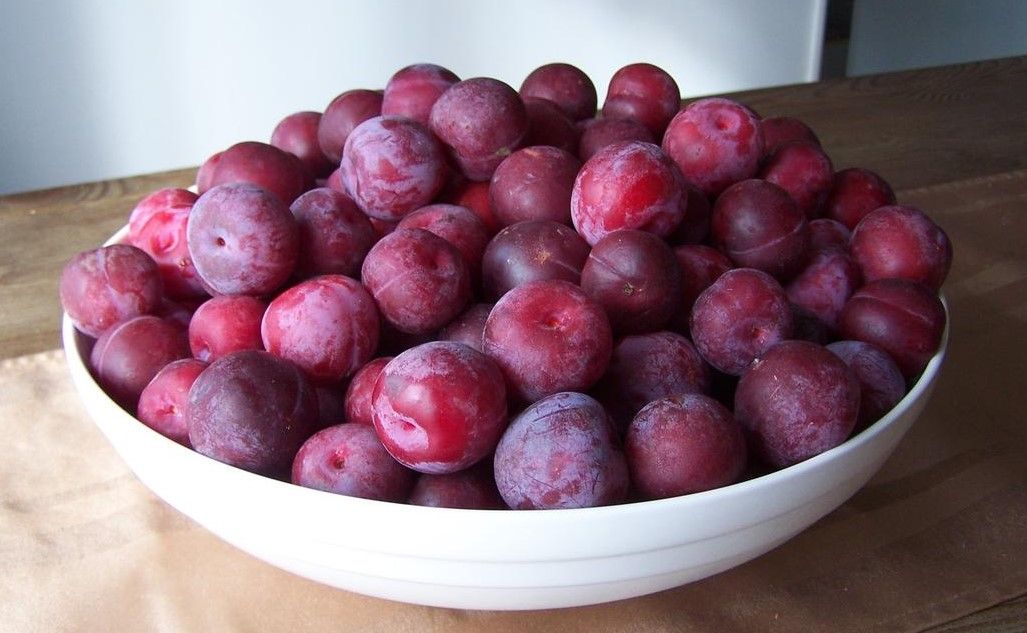Eat broccoli, soy products or pumpkin seeds and use the plant substances they contain to improve menopausal symptoms? That sounds good. But does it really work?
Hot flashes, mood swings, insomnia: menopause is torture for many women. And then there are often extra pounds that the scales show and for which there is no explanation. But no woman has to be torn into a hole by it. Instead, it means: take active countermeasures.
From Irmgard Zierden’s point of view, this definitely includes a balanced, vitamin-rich diet. According to the doctor for gynaecology and naturopathy, there are also foods that gently but effectively relieve menopausal symptoms.
We are talking about the phytoestrogens that are contained in plant-based foods – for example in soy products and flaxseed, but also in pumpkin seeds. These substances are said to mimic the estrogen produced by our bodies. So if the estrogen level in women falls during menopause and this leads to symptoms such as night sweats, phytoestrogens should have a balancing effect.
No solid evidence of effectiveness
That sounds good, but the evidence is missing: “But there is no tangible scientific evidence for this,” says Munich internist Professor Johannes Georg Wechsler. He is President of the Federal Association of German Nutritionists (BDEM).
Irmgard Zierden also points out that studies on the effectiveness of phytoestrogens are not clear. The gynaecologist reports positive feedback from the practice: “In my office hours, women keep telling me that it is good for their condition during menopause if their diet includes foods with phytoestrogens,” says Zierden. That is why she recommends women try it out – and incorporate appropriate foods into their diet.
Phytoestrogens are found, for example, in legumes, cereals, berries and some fruits such as plums. Recipe ideas with these and other ingredients can be found in the recently published book “The Best Diet for Menopause”, on which Zierden helped write.
There is no such thing as a miracle cure
Broccoli, all types of cabbage and rocket are also said to have a positive effect on menopausal symptoms. “In any case, they score with plenty of vitamins and minerals,” says Wechsler. Garlic is also said to be beneficial. It probably not only has a beneficial effect on cardiovascular diseases but is also said to work against bone loss caused by a lack of estrogen. The effect has also not been clearly scientifically proven.
“You can’t say that this or that food helps against menopausal symptoms,” says nutritionist Wechsler. It is a question of the total intake: “It is important to have a balanced diet with lots of fruit and vegetables.”
The gynaecologist Zierden sees it that way too. From her point of view, however, it is worth paying a little more attention to when you eat something during menopause. For example, she advises against eating raw vegetables in the form of fruit and salads in the evening. “This puts too much strain on the intestines at night,” she says. As a result, this could lead to sleep disorders and hot flashes in women.
To avoid hot flashes, coffee should not be drunk at all in the evening and only in doses during the day. Hot spices and too much alcohol can also promote hot flashes and sweats. Therefore, Irmgard Zierden relies on keeping to measure
In the evening something light and a lavender tea
She advises menopausal women to eat lightly and, above all, moderately in the evening in order to prevent sleep disorders. Under no circumstances should dinner be the main meal of the day. In order to protect the intestines at night, intermittent fasting is also recommended every now and then: “So don’t eat anything after 6 p.m. in the evening,” explains Zierden.
If you have trouble sleeping, a cup of lavender tea before bed is often more helpful than a glass of wine. “Wine promotes falling asleep, but often hinders sleeping through the night,” says Zierden. A so-called gratitude exercise may also help and calm down. That means: be aware of what went well during the day and be mentally grateful for it.
For many women, menopause is also noticeable when looking at the scales – they put on weight even though they have not eaten more than usual. “That depends on the course of life,” says nutritionist Wechsler.
Fewer calories needed
With increasing age, the body breaks down muscle mass and the metabolism changes. This means that the organism uses less energy. Women should therefore adjust their calorie intake during menopause.
Not least for heart health, it is also important to consume fat as moderately as possible. “Omega 3 fatty acids “, says Irmgard Zierden. They are contained in walnuts, for example, but also in types of fish such as herring and salmon. Fish should be on the menu twice a week if possible.

